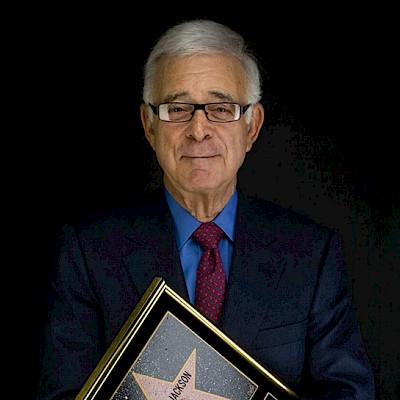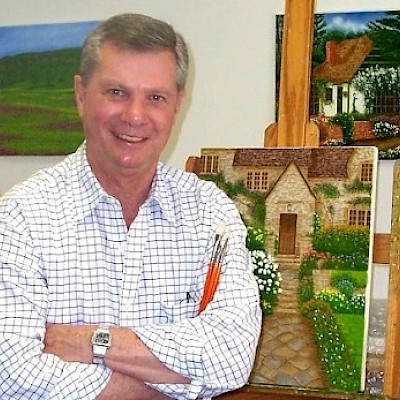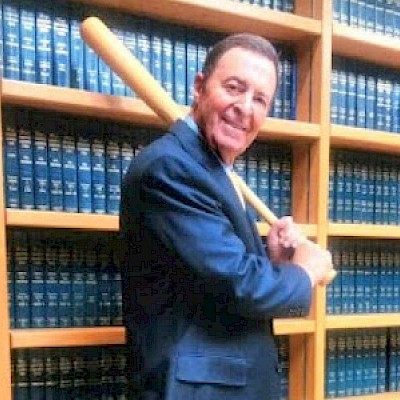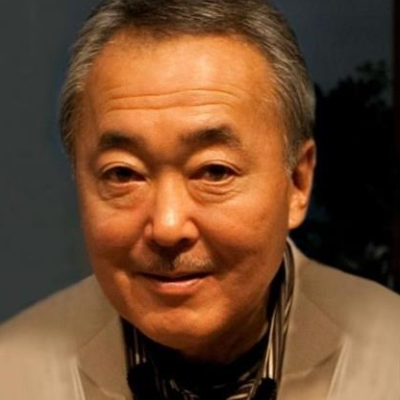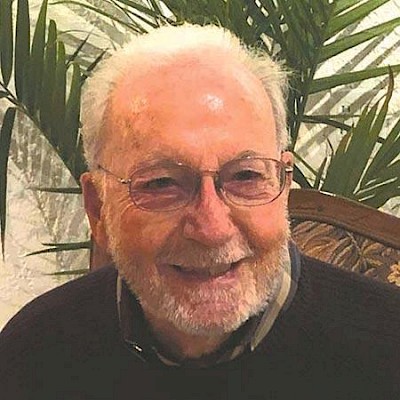Peter Bogdanovich was an iconic film director known for “The Last Picture Show,” “Paper Moon,” and “Mask.” Died Thursday, January 6, 2021 at his home in Los Angeles of complications of Parkinson’s disease at the age of 82.
Within one decade, the ’70s, he was transformed from one of the most celebrated of filmmakers, notably for “The Last Picture Show,” into one of the most ostracized.
Peter Bogdanovich built a reputation as a film journalist in the 1960s with many of his stories published in Esquire magazine. He was hired by B-movie legend Roger Corman and worked with him on his films including “Wild Angels.” He directed and co-wrote the critically acclaimed Oscar-nominated “The Last Picture Show” in 1971. Based on a Larry McMurtry novel, the coming-of-age drama starred Jeff Bridges and Cybil Shepard as young adults and the choices they have to make in a small Texas town. The movie established Bogdanovich as one of the maverick young directors of the 1970s along with Martin Scorsese and Steven Spielberg. They made their own artistic choices with their films instead of the studios. His next two films were critical and box office hits, “What’s Up Doc?” starring Barabara Streisand and Ryan O’Neal and “Paper Moon” with O’Neal and his daughter Tatum. Bogdanovich’s career then took a downturn, though he had success with the 1985 film “Mask.” He also acted, most notably playing a psychotherapist on “The Sopranos.”
Notable Quote: “Movies used to be something powerful. …It’s been a bit ruined now. I don’t know if we can get it back — I think we can. But it’s lost its innocence. The interesting stuff has moved to TV, and movies have become more like, ‘What can I blow up next?’ There’s a terrible cancer at the heart of that.” – Los Angeles Times in 2015
Peter Bogdanovich, who parlayed his ardor for Golden Age cinema into the direction of acclaimed films like “The Last Picture Show” and “Paper Moon,” only to have his professional reputation tarnished in one of Hollywood’s most conspicuous falls from grace, died early Thursday at his home in Los Angeles. He was 82.
His daughter Antonia Bogdanovich confirmed the death but did not specify a cause.
Originally trained as a stage actor (he was also a producer, a screenwriter, a film historian, a programmer and a critic, as well as a theater and television director), Mr. Bogdanovich was long recognizable by his soulful basset-hound face, outsize horn-rimmed glasses and trademark neckerchief.
As a filmmaker, he was hailed for his ability to coax nuanced performances from actors, and for the bittersweet luminosity of movies that conjured a bygone past — bygone in American cinema, bygone in America itself.
Reviewing “The Last Picture Show” — only Mr. Bogdanovich’s second film and widely considered his foremost — on its release in 1971, Newsweek’s critic called it “a masterpiece,” adding, “It is the most impressive work by a young American director since ‘Citizen Kane.’”
Before the end of the ’70s, however, Mr. Bogdanovich had been transformed from one of the most celebrated directors in Hollywood into one of the most ostracized. His career would be marred for years to come by critical and box-office failures, personal bankruptcies, the raking of his romantic life through the press and, as it all unspooled, an orgy of film-industry schadenfreude.
“It isn’t true that Hollywood is a bitter place, divided by hatred, greed and jealousy,” the director Billy Wilder once observed. “All it takes to bring the community together is a flop by Peter Bogdanovich.”
What was more, Mr. Bogdanovich’s life and work would be affected by violent, almost unimaginable personal loss.
Yet in a business that rarely grants second acts, he enjoyed a professional renaissance, both behind the camera and in front of it, in the 21st century. To television viewers of the period, he was probably best known for his recurring role on the HBO drama “The Sopranos.” He portrayed Dr. Elliot Kupferberg, the psychiatrist who treats Tony Soprano’s psychiatrist, played by Lorraine Bracco.
Mr. Bogdanovich’s film career had seemed almost foreordained, for he was nothing short of a cinematic prodigy. “I was born,” he liked to say. “And then I liked movies.”
As a writer and critic, a calling he pursued in the 1960s, he was the author of influential monographs on Hollywood directors before he was out of his 20s.
As a director, he blazed to fame in the early ’70s as the auteur of three critically acclaimed films: “The Last Picture Show,” based on Larry McMurtry’s novel of small-town Texas life; “What’s Up, Doc?” (1972), a contemporary twist on 1930s screwball comedies, starring Barbra Streisand and Ryan O’Neal; and “Paper Moon” (1973), starring Mr. O’Neal and his daughter, Tatum, about a Depression-era confidence man.
Mr. Bogdanovich’s life, it turned out, was bracketed by loss. For as he would discover, he had been born to a family defined by absence.
The son of Borislav and Herma Robinson Bogdanovich, Peter Bogdanovich was born on July 30, 1939, in upstate Kingston, N.Y., and reared on the Upper West Side of Manhattan. His parents were recent immigrants to the United States — his father a Serbian painter, his mother a member of a well-to-do Austrian Jewish family.
The Bogdanovich home, Mr. Bogdanovich recalled long afterward, was pervaded by melancholy. His father was silent and withdrawn. Throughout Peter’s boyhood, their rare moments of camaraderie came when the elder Mr. Bogdanovich took his son to silent films at the Museum of Modern Art.
When Peter was about 8, he learned the source of the family sorrow: He had had an older brother, who died as a baby after a pot of boiling soup was accidentally spilled on him.
By this time Peter was irretrievably in love with motion pictures — sound and silent alike. From the age of 12 to about 30 he kept a file of index cards, one per picture, evaluating every movie he saw. In the end, he had amassed some five thousand cards.
Pictures from the heyday of Hollywood’s studio system — by directors like John Ford, Howard Hawks, George Cukor and Alfred Hitchcock, starring actors like John Wayne, Cary Grant and James Stewart — beckoned to him above all.
“I just wanted to be like those people on the screen,” Mr. Bogdanovich told The Los Angeles Times in 1972. “I wanted to look like Bill Holden, because I wanted to be a real American boy and do all those wonderful things. And with a name like Bogdanovich there wasn’t much of a chance.”
As a teenager, Peter studied with the famed acting teacher Stella Adler. Leaving the Collegiate School, a Manhattan prep school, “a failed algebra examination shy of a high school diploma,” as The New York Times wrote in 1971, he played small roles in summer stock, Off Broadway and on television.
At 20, he directed an Off Broadway revival of Clifford Odets’s drama “The Big Knife.” (The cast included a young Carroll O’Connor.) Around this time, he began writing on film for publications like Esquire, The Saturday Evening Post and the French magazine Cahiers du Cinéma. He helped program Golden Age pictures for the New Yorker Theater, a Manhattan revival house, and for MoMA.
For MoMA, Mr. Bogdanovich wrote his series of monographs on great directors, including Ford, Hawks, Hitchcock and Orson Welles. It was a mission undertaken, he cheerfully confessed, so that he could meet and interview his idols.
Those sessions, he said, were his de facto film-school education. (Mr. Bogdanovich would spend the rest of his career, interviewers often carped, dropping his teachers’ names. “Jack” flicked out conversationally denoted Mr. Ford. “Hitch” and “Orson” were self-explanatory.)
He would become most closely involved with Welles, recording scores of hours of oral history before Welles’s death in 1985. The seminal book that resulted, “This Is Orson Welles” (1992), edited by Jonathan Rosenbaum and with Mr. Bogdanovich and Welles as co-authors, is “the closest we’ll ever come to a Welles autobiography,” The Orlando Sentinel said in 2002.
Though Mr. Bogdanovich repeatedly disavowed the connection, critics liked to point out affinities between Welles’s career and his own: Both men began as directorial wunderkinds. (“Citizen Kane,” released in 1941, was Welles’s first full-length feature.) Both were later expelled from the Eden of A-list directors. (In the 1970s, a down-and-out Welles lived for a time in Mr. Bogdanovich’s mansion in the Bel Air section of Los Angeles.)
Mr. Bogdanovich struck out for Hollywood in 1964, accompanied by his wife, Polly Platt, a production designer he had married two years before. He was hired as a second-unit director and rewriter by the producer Roger Corman, whose movies — among them “Attack of the Crab Monsters” (1957) and “Teenage Cave Man” (1958) — strove for maximal shock value at minimal expense.
For Mr. Corman, Mr. Bogdanovich directed his first feature, “Targets,” released in 1968. Inspired by the Charles Whitman Texas tower shootings of 1966, it was nominally a thriller about a troubled young man who embarks on a killing spree.
But it was really a paean to, and an elegy for, the Hollywood films that Mr. Bogdanovich cherished. An aging, elegant Boris Karloff plays an aging, elegant version of himself. Scenes of Tim O’Kelly, who played the young man, scaling heights from which to shoot random strangers — a gas storage tank, a drive-in theater screen — are vivid homages to James Cagney’s last stand, high up in a gas plant, in “White Heat,” Raoul Walsh’s celebrated 1949 film.
For its stylish direction and brisk screenplay, by Mr. Bogdanovich and Ms. Platt, “Targets” drew wide critical praise. His triumph led him to be hired to direct “The Last Picture Show” for Columbia Pictures.
That film, with screenplay by Mr. Bogdanovich and Mr. McMurtry, centers on life and love in a down-at-the-heels town in the early 1950s. Shot in stark black and white in Mr. McMurtry’s hometown, Archer City, Texas, the movie, designed by Ms. Platt, portrays a world of boarded-up storefronts and blowing dust.
The cast featured relative unknowns, among them Jeff Bridges, Timothy Bottoms and Cybill Shepherd, a 19-year-old model whom Mr. Bogdanovich had discovered staring seductively at him from the cover of Glamour magazine while he waited in a supermarket checkout line.
It also included veterans like Cloris Leachman and Ben Johnson, who at midcentury had been a member of Ford’s stock company.
“The Last Picture Show,” too, is a valentine to old Hollywood. At the town’s fading movie house, Vincente Minnelli’s 1950 comedy, “Father of the Bride,” is playing. When the theater is forced to close, the last picture shown there is Hawks’s “Red River” (1948), starring the indomitable John Wayne.
Nominated for eight Oscars, including best picture, “The Last Picture Show” won two, for the performances of Ms. Leachman and Mr. Johnson.
The film catapulted Mr. Bogdanovich to the first rank of Hollywood directors. It also upended his personal life. He left Ms. Platt and their two young children for Ms. Shepherd, embarking on an eight-year relationship that furnished ceaseless grist for Hollywood gossip columns.
His professional success continued with “What’s Up, Doc?,” a reworking of Hawks’s 1938 comedy, “Bringing Up Baby,” and again with “Paper Moon.”
Set in dust-blown 1930s Kansas, “Paper Moon” brought an Oscar to 10-year-old Tatum O’Neal for her performance as a scrappy girl who may or may not be the con man’s daughter. (Despite her divorce from Mr. Bogdanovich, Ms. Platt designed this film and “What’s Up, Doc?”)
But after the wild success of the early 1970s came a string of creative debacles. Two vehicles Mr. Bogdanovich conceived to star Ms. Shepherd incurred critical vitriol: “Daisy Miller,” his 1974 adaptation of Henry James’s 1870s novella, and the musical “At Long Last Love” (1975), also starring Burt Reynolds.
“Produced for $15 million, this ‘musical’ was Cole Porter sung by the tone deaf, danced by the afflicted,” The Chicago Tribune wrote in 1990. “Critics compared leading man Burt Reynolds to a wounded buffalo and Shepherd to an orphan trying to play Noël Coward. The picture, which lost $6 million, was Bogdanovich’s ‘Heaven’s Gate.’”
His next film, “Nickelodeon” (1976), an overt homage to early cinema starring Mr. O’Neal and Mr. Reynolds, was also critically derided. But there was far worse to come.
In the late 1970s, after his romance with Ms. Shepherd had ended, Mr. Bogdanovich met the Playboy model Dorothy Stratten at Hugh Hefner’s Playboy Mansion. They fell in love, and Ms. Stratten, who was married, left her husband to move in with him.
Mr. Bogdanovich gave her a small role in his caper “They All Laughed,” starring Audrey Hepburn and Ben Gazzara. But in August 1980, before it was released, her estranged husband, Paul Snider, shot her to death before taking his own life. (The murder of Ms. Stratten, 20 at her death, would be the subject of a 1983 feature film, “Star 80,” directed by Bob Fosse and starring Mariel Hemingway.)
Afterward, Mr. Bogdanovich was reported to have watched “They All Laughed” — which preserves Ms. Stratten’s last film performance — over and over, as if communing with a ghost.
Released in 1981, the film was a critical and box-office failure. Dissatisfied with its promotion, Mr. Bogdanovich bought the rights and tried to distribute it himself. It proved a disastrous decision, costing him some $5 million.
In 1985, with “$21.37 in the bank and $25.79 in his pocket,” according to court papers, he declared bankruptcy, a move that further marginalized him in Hollywood. In the years that followed, he became, by his own account, addicted to prescription drugs.
“I made an enormous number of mistakes,” Mr. Bogdanovich said in a 2004 interview. “You don’t do rational things when somebody blows up an atom bomb at your feet.”
One thing he did that he said he came to regret was to write a biography of Ms. Stratten, “The Killing of the Unicorn,” which was equal parts adoration and accusation. Published in 1984, it contended that Mr. Hefner, in commodifying her, had been partly responsible for her death.
Mr. Hefner retaliated with a bombshell of his own: He publicly accused Mr. Bogdanovich of having seduced Ms. Stratten’s younger half sister, Louise, shortly after the murder, when Louise was 13, below the age of consent.
Mr. Bogdanovich denied the accusation. But it was a matter of record that he paid for Louise’s education; arranged for her to have corrective surgery on her jaw — an act, his detractors said, that was intended to make her look more like her dead sister — and, in 1988, when Louise was 20, married her, causing a frenzy of tabloid opprobrium.
Louise Stratten, billed as L.B. Stratten, appeared in several films and TV movies directed by Mr. Bogdanovich. They divorced in 2001.
“She was like a contact with Dorothy, as far as I was concerned,” Mr. Bogdanovich, speaking of the marriage, told The New York Times the next year. “There was garbage talk that I made Louise have facial surgery — to look like Dorothy. ‘Vertigo’ stuff.”
Mr. Bogdanovich seemed to return to directorial form in 1985 with “Mask,” a well-received picture starring Cher as the mother of a boy with a facial deformity.
But he alienated the Hollywood establishment once more by filing a multimillion-dollar lawsuit against the studio, Universal Pictures, and the producer, Martin Starger, for cutting two scenes and substituting music by Bob Seger for the Bruce Springsteen soundtrack that Mr. Bogdanovich favored. (The suit was later withdrawn.)
Several critical failures followed, including “Illegally Yours” (1988), a romantic comedy starring Rob Lowe; “Texasville” (1990), a sequel to “The Last Picture Show”; and “The Thing Called Love” (1993), a comedy-drama about country music.
In the late 1990s, after declaring bankruptcy again, the down-and-out Mr. Bogdanovich lived for a time in the guesthouse of the young director Quentin Tarantino.
From the mid-’90s through the first years of the 21st century, Mr. Bogdanovich resorted to directing for television. His credits include the TV movies “Prowler” (1995) and “Naked City: A Killer Christmas” (1998) and an episode of “The Wonderful World of Disney.”
But the medium, he said, taught him economy and speed. He returned to the big screen in 2001 with “The Cat’s Meow,” his first feature in nearly a decade. Made for just $6 million, it was shot in only 24 days.
That film, too, is a paean to old Hollywood. It tells the story — based on a long-suppressed incident that for years ran through the industry in whispers — of a fatal shooting in 1924 aboard the yacht of the newspaper magnate William Randolph Hearst.
“The Cat’s Meow” — starring Edward Herrmann as Hearst; Kirsten Dunst as his mistress, the silent-film star Marion Davies; and Eddie Izzard as her lover Charlie Chaplin — earned mostly favorable notices.
Mr. Bogdanovich’s luster was also restored with his publication of two acclaimed books: “Who the Devil Made It” (1997), a collection of his interviews with eminent directors, and “Who the Hell’s in It” (2004), about great actors and actresses.
Later features he directed include “She’s Funny That Way” (2014) and “The Great Buster,” a documentary about Buster Keaton, in 2018.
In addition to his daughter Antonia, he is survived by another daughter, Alexandra (both from his marriage to Ms. Platt); a sister, Anna Bogdanovich; and three grandchildren.
Among Mr. Bogdanovich’s other films as a director are “Saint Jack” (1979), starring Mr. Gazzara as an American who aims to open a bordello in Singapore; “Noises Off …” (1992), an adaptation of a play by Michael Frayn; and the documentary “Directed by John Ford” (1971).
In a 2002 interview with The New York Times, Mr. Bogdanovich offered a cleareyed appraisal of his career.
“I’m not bitter,” he said. “I asked for it. Success is very hard. Nobody prepares you for it. You think you’re infallible. You pretend you know more than you do. Pride goeth before the fall.”
But when it came to one of his detractors, at least, Mr. Bogdanovich appeared to have the last laugh. His later-life acting roles included two appearances, in 2005 and 2007, on the NBC series “Law & Order: Criminal Intent.”
In both episodes, Mr. Bogdanovich, always a wicked mimic, played to the hilt a sybaritic, smoking-jacket-clad, thinly veiled incarnation of Hugh Hefner.
Maia Coleman contributed reporting. Margalit Fox is a former senior writer on the obituaries desk at The Times. She was previously an editor at the Book Review. She has written the send-offs of some of the best-known cultural figures of our era, including Betty Friedan, Maya Angelou and Seamus Heaney.
